URBANREC
Economically viable UV-protective and antioxidant finishing of wool fabric dyed with Tagetes erecta flower extract: Valorization of marigold
Technological advancements and upgraded human choices have opened scientific ways to utilize ecofriendly and never ending natural resources. Natural dyeing compounds extracted from plants, well known for various biological activities, are playing significant role for the growing demands of textile industrial and healthcare sectors. Marigold (Tagetes erecta), a multipurpose plant, is utilized for wool functionalization; coloration, UV protection and antioxidant finishing. Carotenoid compounds of marigold aqueous extract produced natural yellow shades on wool fabric of good color and fastness properties. Obtained color palettes were broadened with the application of metallic salt mordants. UV protection ability of dyed wool fabric was assessed in terms of UPF (UV protection factor) and UV transmittance values in ultra-violet region (UV-A and UV-B). More adsorbed dye compounds on wool accordingly increased the activity from 6.85 to 50+ in terms of UPF values and much lowered UV transmittance (less than 5%). Application of mordants enhanced dye adsorption via increased active sites through coordination bonding and improved activity simultaneously. UV radiations hazardous effect is also associated with oxidative stress by free radicals production. Carotenoids abstract peroxy free radicals, and extended conjugation in their chemical structure makes a stable entity (carbon centered free radical) via resonance stabilization. Dye concentration and metallic mordants positively affected antioxidant activity owing to more compounds adsorption.

» Author: Mohd Shabbir, Luqman Jameel Rather, Faqeer Mohammad
» Reference: Industrial Crops and Products, Volume 119
» More Information

This project has received funding from the European Union's Horizon 2020 research and innovation program under grant agreement Nº 690103




URBANREC Guidelines by URBANREC Consortium is licensed under a Creative Commons Reconocimiento-NonComercial-NoDerivatives 4.0 Internacional License.
Puede hallar permisos más allá de los concedidos con esta licencia en www.aimplas.net
